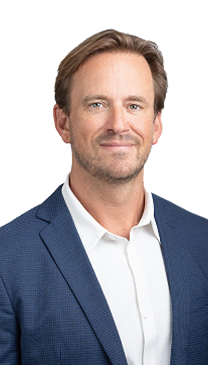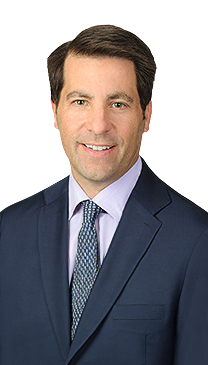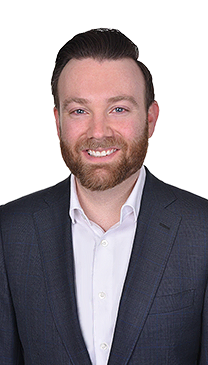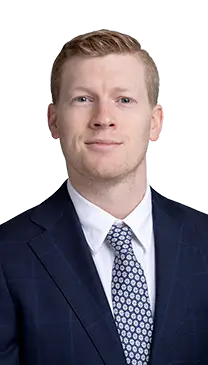Pharma Commercialization—Thought Leader Interview Series With Lucid Group
Mark Martin, Managing Director and Head of Pharma Commercialization, Interviews Dennis O’Brien and Rick Sannem of Lucid Group
Thank you both for sitting down with us. We’ve watched Lucid grow from a small U.K.-based medical education business to a global healthcare consultancy that partners with some of the world’s largest pharmaceutical and biotechnology companies. Can you provide some insight into the factors for your success and discuss how Lucid differentiates itself within the market?
Thanks, Mark. First, Lucid has a high percentage of ex-pharma senior leaders, which helps us culturally. Our starting point is always about how we can help our clients, which means having a thorough understanding of strategy, enabling us to add real value. In addition, we’re passionate about quality and have an obsession around our knowledge of science and the clinical environment. Having these qualities has helped us to build strong partnerships with our clients along with some of the best strategies and programs in the industry, which have truly shaped clinical care and made an impact on the world.
As novel therapies become more complex and commercialization becomes more challenging, can you discuss the key nuances that underpin successful brand campaigns in the current environment? Are there any areas that you view as critical for positive results?
We believe a successful asset starts in how clinical trials are developed to create the most clinically meaningful data. Having a clear, robust commercial view of a therapy area, and how it will be shaped in the future by the clinical community, is critical. In addition, working hand-in-hand with HCPs to build further studies and create answers for future changes to clinical practice and algorithms are key areas where we have helped our clients to succeed. In terms of launching medicines, with multiple stakeholders, there is more of a requirement to ensure a cohesive strategy exists across all departments and a plan to execute. Equally important is how strategy plays a part in everyday execution. With more and more data, successful organizations are the ones that systematically review data as a cross-functional team, understand strategy execution, and are agile enough to constantly adapt to deliver on the plan.
Many commercialization providers are increasingly trying to differentiate via either (1) high science or (2) data/digital, but rarely do we see firms that excel at both. That is one of the rare characteristics that Lucid brings to the table. Can you talk to us about how that approach distinguishes your business, especially as customers and procurement departments are increasingly opinionated about what next-gen providers need to offer?
We have always approached our business thinking around what clients need strategically. How we execute now is based on applying strategy and communications across multiple stakeholders, and this requires a diverse set of capabilities. Our core belief is that if we are to deliver outstanding work for clients, we need best-in-class capabilities that work together to return the most impact possible. Diverse minds create more compelling solutions.
Lucid has capabilities that can support brands across the drug development lifecycle. Can you discuss the importance of having a full lifecycle offering and how that differentiates you when going to market?
Understanding long-term strategy and executing on it is critical to any medicine’s success. At every stage of the drug development lifecycle, there is information lost, silos created, or decisions made, which may not be relevant to the long-term impact of a medicine. We believe we are a long-term partner to our clients and are accountable for their success. We are building an organization that does not just deliver projects, but one that cares about strategy and execution. By being a strategy-to-execution partner, we are able to help shape organization and asset strategy, and pull this through into execution, where much of strategy and ambition can get lost in siloed tactics across many agencies and vendors.
In your view, are there any other key trends driving change in healthcare communications? Are there any important industry trends being overlooked?
Clearly, AI – and how our industry uses AI – is a key factor over the next five years. It poses a huge opportunity and a challenge, and we are excited about how we can bring new thinking and more value to our clients. In addition, we are seeing our clients specialize in therapy areas, which requires evolved thinking on how to position numerous therapies in the same space and how to effectively manage multiple assets through the lifecycle. This brings in new opportunities for clients to not only differentiate assets (which is increasingly difficult) but to improve differentiation in the way the organization engages and contributes to a therapy area. Finally, we are focusing on how we can best apply data to constantly drive and inform how we execute strategy and how we measure our impact and outcomes. We really hope that the availability of data changes how we think about communications and application of strategy to be more of a day-to-day requirement.
Can you discuss the impact that data, technology, and digital enablement have had in pharma commercialization over the past five years? How has it impacted the way you deliver services to clients, and what themes do you expect to emerge over the next five years?
It’s an exciting time. Data, technology, and digital, combined with our COVID-19 experiences, have created an opportunity to challenge all traditional models and get us much more focused on creating the best customer experience. This includes understanding how to gather insights and evidence as quickly as possible, defining who really is the target customer, creating the best experiences for them through understanding channel effectiveness, and applying that with agile diligence. Over the next five years, the businesses that think most clearly about who and how to win will succeed, and those that are slow and continue to apply traditional models will see mediocrity. For Lucid, we push our clients to be the industry leaders and to take calculated risks—and to make sure we are applying the latest thinking to every interaction. We have to be the source of expertise, which requires us to invest in innovation.
With a global presence and offices in both the U.K. and U.S., how do you view the differences between the U.S. and European commercialization landscape? Are there any key trends that apply to one region over the other?
Regulations and approval processes are different globally, along with commercialization approaches. We look to the U.S. to learn how to effectively engage patients, but look globally to consider how to shape a market or transform treatment algorithms. Access to data in the U.S. is so far advanced and now drives much of our activities as we become much more data-driven in our approach. This leads us to be more regionally focused and granular thinking in the U.S., whereas our global and European work tends to sit above the local markets and is therefore more strategic and KOL-focused. In both cases, we’ve realized that to support our clients, you need local expertise, so a presence across these key geographies enables us to offer best-in-class support as clients want to launch their medicines most effectively.
Lucid maintains several therapeutic specializations, including competencies across oncology, immunology, and rare disease. Can you discuss how therapeutic specialization has been a differentiator for Lucid?
We have and always will aim to build and maintain industry-leading therapy area knowledge for our clients. It is a key reason for clients to commission our services. That said, we have always gone beyond the therapy area knowledge and the science. Our focus has always been to marry commercial strategy, science, clinical understanding and expertise, and powerful KOL relationships together. When we get this right, it allows us to provide better insights and advice and, more importantly, to build programs that are more clinically compelling to help us really make a difference in the area.
How are you viewing the opportunity for specialization within cell and gene therapy, as that subsegment continues to rapidly evolve?
Sometimes it is important to reflect on why we are so proud to work in the industry—we make a difference. Cell and gene therapy is an area that has huge potential. We tend to do two things: 1) follow and commit to our clients in new therapy areas and 2) invest heavily in understanding and building our team capabilities, beyond our client projects; this means investing in our team time to strengthen our knowledge that we can apply to our clients. It has worked in other therapy areas, as we are now known as world-leading specialists in key growth therapy areas.
Drug approvals/recommendations from the FDA/EMA declined in 2022 when compared to the prior year. How does the industry adapt to a lower level of drug launches, and what is your outlook on the remainder of 2023 and beyond?
That is true. We did see a decline in 2022, but the trend for approvals is still generally positive over a 5–10 year period, particularly for biologics in more specialized areas. But we see that as a good thing, as it addresses the unmet need. We do expect approvals to increase from 2023 to 2026 as labor shortages become less of a challenge. As we advise our clients, 2023 and beyond means that every launch matters more than ever. Differentiating early in clinical development is important, building more effective strategic positioning matters, knowing the way a therapy area works and what matters is more important than ever, and being ruthless in data-driven agile execution is essential. Our thinking is that there will be bigger winners and bigger losers going forward, with the winners working more closely together across internal departments as one team to build and execute effective strategies.
Contacts
-
Mark Martin Managing Director Global Head of Pharma Services

-
Larry DeAngelo Managing Director Global Co-Head of Corporate Finance

-
Brandon Bleakley Director

-
Michael Ruffcorn Vice President
